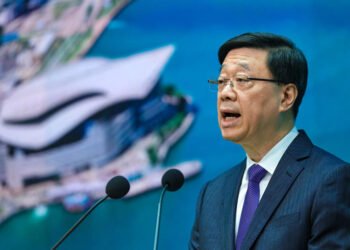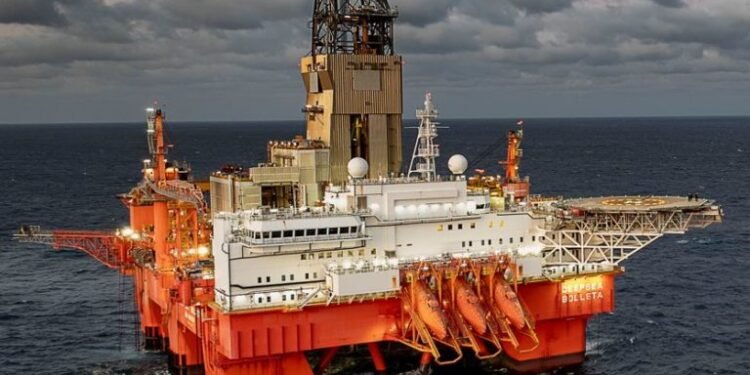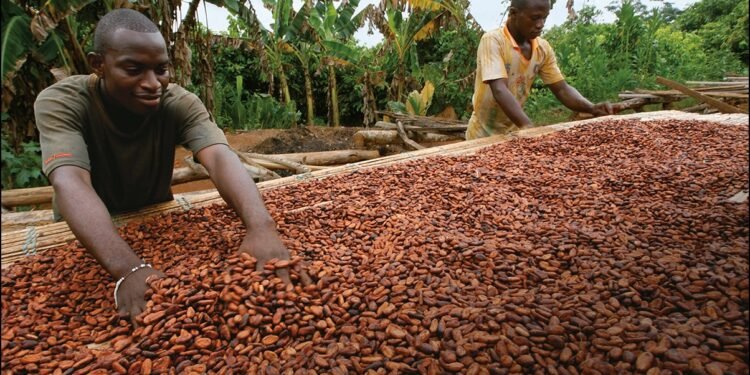Hong Kong’s Chief Executive, John Lee has warned that the city will ban marine products from “a large number prefectures” if Japan discharges treated radioactive wastewater from the Fukushima nuclear plant into the sea.
Lee disclosed in a press briefing on Tuesday, July 11, 2023 that his government would err on the side of caution because the planned release of wastewater from the damaged Fukushima nuclear plant into the Pacific Ocean is an unprecedented exercise.
Lee added that he has to take the issue seriously because it affects not only the current population of Hong Kong but also the next generation.
“The action we will take, if the exercise really starts, is that we will be banning a large number (of) prefectures’ sea products,” he said. However, he did not mention which prefectures and what products will be affected.
A massive earthquake and tsunami in March 2011 destroyed the Fukushima Daiichi nuclear plant’s cooling systems, causing three reactors to melt and releasing large amounts of radiation. The tanks storing the water used since the accident to cool the reactor cores will reach their capacity in early 2024.
In 2021, Japan’s government announced plans to gradually release the treated — but still slightly radioactive — water following its dilution to what it says are safe levels. Japanese officials say the water, currently stored in about a thousand tanks at the plant, needs to be removed to prevent accidental leaks in case of an earthquake and to make room for the plant’s decommissioning.
Last week, the International Atomic Energy Agency (IAEA) endorsed the plan, saying it meets international standards and the environmental and health impact would be negligible.
However, the plan has faced fierce protests from local fishing communities concerned about safety and reputational damage. Neighboring countries, including South Korea, China and Pacific Island nations, have also raised safety concerns.
On Monday, July 10, 2023, fishermen in South Korea staged a rally in front of the National Assembly in Seoul against the plan to release treated radioactive water.
Unknown Risks
Also on Tuesday, Chief Executive John Lee averred that the Hong Kong government will formulate policies in response to Japan’s plans, and they will be announced when ready.
“The risks are very unknown. I must ensure that food safety is protected in Hong Kong,” Lee said.
Currently, the import of certain products such as fruits and vegetables from Fukushima is prohibited in Hong Kong. Other products such as meat and poultry from there are allowed in if they come with a radiation certificate.
The import of many food products from four other Japanese prefectures immediately south of Fukushima; Gunma, Ibaraki, Tochigi and Chiba, will also have to be accompanied with radiation certificate.
Japanese officials claim that the diluted water will be released into the ocean over decades, making it harmless to people and marine life. However, some scientists say the impact of long-term, low-dose exposure to radionuclides is unknown and the release should be delayed.
On Monday, the operator of the wrecked nuclear plant began testing equipment constructed for discharging the wastewater.
The tests at the Fukushima Daiichi nuclear power plant use fresh water instead of the treated water, operator Tokyo Electric Power Company Holdings (TEPCO) said.
Plant workers examined pumps and emergency shutdown equipment at the newly constructed seaside facility, which will dilute the treated water with large amounts of seawater. The diluted water then enters an undersea tunnel and is released into the ocean about 1 kilometer (0.6 miles) from the coast.
The undersea tunnel and other key facilities are near completion. TEPCO disclosed that the voluntary tests are expected to continue for about two weeks ahead of mandatory pre-operation checks to be conducted by the Nuclear Regulation Authority, possibly in early July.























